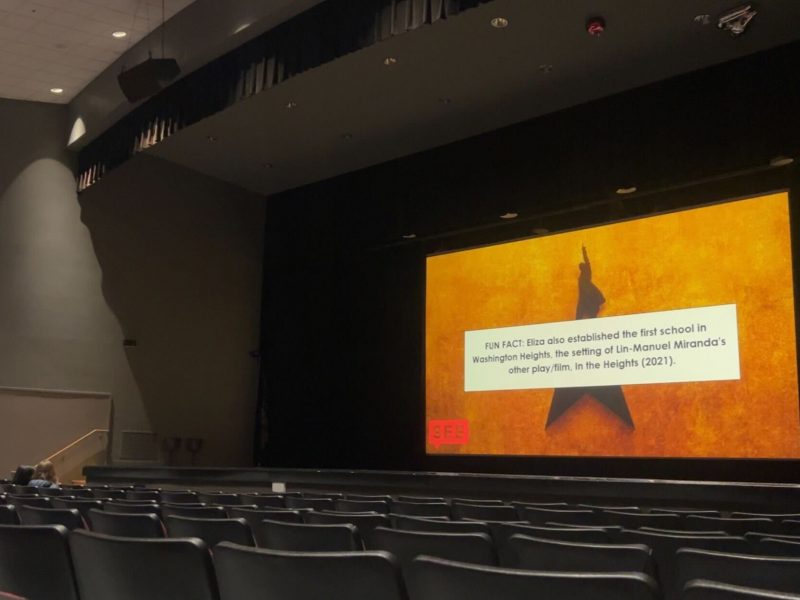Spiced apple cider flowed like wine at Language House’s annual Short Film Festival in St. Mary’s Hall at the University of Maryland Thursday night.
The presentation is part of a longstanding tradition to bring residents in the living-learning program together through amateur short films. Students in language clusters laughed, cheered and applauded short films made by themselves and their peers.
This year’s festival highlighted social inequities to increase awareness of issues relating to a language’s home region. Nine three to five-minute films played in succession to the large crowd that filled the St. Mary’s Hall multipurpose room.
Students in language clusters, groups focused on working with a particular language, recorded, acted, edited and produced each film over the course of a semester.
[‘Things Hidden Since the Foundation of the World’ challenges culture of media consumption]
This year’s theme, social inequities, was meant to complement this university’s annual first year book, “Poverty, by America” by Matthew Desmond, which investigates the cause of poverty in one of the wealthiest countries in the world, said Language House director Marilyn Matar.
Other than length guidelines, the films were confined by few rules and could be made in any style.
“We allow students to do the style they want, but very often they enjoy doing films where they can be engaged and have some fun,” Matar said .
The French cluster’s film satirized corruption and unfair policing in a loose, humorous style. Others, like the Japanese cluster’s film portraying the unfairness of unpaid overtime, were more conventionally cinematic, with elements of drama and tragedy.
Following the screening, the festival’s four judges briefly conferred to determine the top three winning films.
Thalia Stewart worked on and starred in the German cluster’s third-place winning short film, depicting a not-so-distant dystopian future where LGBTQ+ individuals were hunted by privacy-invading police detectives.
The sophomore German and Russian major said working on the film was stressful but fun, and that the topic of LGBTQ+ discrimination is particularly relevant in light of the presidential election.
“LGBTQ rights were really on the table,” Stewart said. “It’s also an issue in Germany.”
[Despite missteps, ‘From Zero’ is Linkin Park’s strongest work in years]
Junior Japanese major Grace Kittel and sophomore romance languages major Lauryne Rodgers both acted in and collaborated on the Korean cluster’s first-place film.
The piece satirized classism and tensions between the rich and poor. Kittel, who edited the film, said the K-drama Boys Over Flowers served as the film’s inspiration.
“I think class particularly plays a big role in Korean society because the language is so hierarchical,” Kittel said. “If somebody is of a higher social status than you, or even just a year older than you, you’re supposed to use formal language with them.”
The most frustrating part of making the film was having to constantly reshoot the scene where water was thrown on the wealthy bully character, Rodgers said. But the process was ultimately very fulfilling.
“I’m glad that it turned out the way that it did,” Kittel said.



